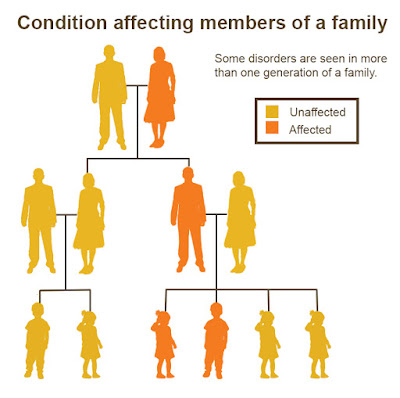Personalized Medicine: Tailoring Mental Health Treatments
The Role of Genetics in Mental Health
In an ever-evolving field of science, the connection between genetics and mental health has become an area of significant interest. This article aims to explore the intricate relationship between our genetic makeup and mental well-being. By delving into the genetic factors that influence mental health and the broader implications of these discoveries, we can better comprehend the complexity of the human mind.
Introduction
Mental health disorders affect millions of people worldwide, with conditions ranging from anxiety and depression to more severe disorders like schizophrenia and bipolar disorder. While environmental factors and personal experiences play a crucial role in mental health, genetics are increasingly recognized as a fundamental component of the puzzle.
The Genetics of Mental Health
Understanding how genetics impact mental health involves examining the genes that may predispose individuals to certain conditions. Researchers have identified several genetic markers associated with mental health disorders, making it clear that there is a genetic component to these conditions.
The Heritability Factor
One of the key findings in this field is the concept of heritability. Heritability refers to the extent to which genetics contribute to the development of a particular trait or condition. In the case of mental health, studies on twins have provided valuable insights into the heritability of disorders. Identical twins, who share 100% of their genes, are more likely to both have a mental health disorder if one twin is affected, compared to non-identical twins who share only 50% of their genes.
Complex Interactions
However, it's important to note that genetics alone do not determine mental health outcomes. Instead, genetics interact with environmental factors in complex ways. A person's genetic predisposition may make them more vulnerable to a disorder, but it doesn't guarantee its development. External factors such as trauma, stress, and life experiences also play a pivotal role.
Epigenetics
Epigenetics is another fascinating aspect of this relationship. Epigenetic changes can influence gene expression without altering the underlying DNA sequence. This means that environmental factors can modify how genes associated with mental health are expressed, further highlighting the intricate interplay between nature and nurture.
The Future of Genetic Research
Advancements in genetic research continue to shed light on the role of genetics in mental health. As technology improves, scientists can identify more specific genetic markers linked to various disorders. This knowledge can lead to more targeted treatments and interventions.
Personalized Medicine
One promising application of genetic research is personalized medicine. By analyzing an individual's genetic profile, healthcare providers can tailor treatments to suit their unique genetic makeup. This approach has the potential to revolutionize mental health care, offering more effective and personalized interventions.
Conclusion
In conclusion, the role of genetics in mental health is a multifaceted topic. While genetics contribute to an individual's susceptibility to mental health disorders, they are only one piece of the puzzle. Environmental factors and life experiences also play a significant role in shaping mental well-being. As our understanding of genetics and mental health deepens, we can expect more innovative approaches to prevention and treatment.
FAQs
1. Can genetics alone cause mental health disorders?
Genetics can increase the risk of developing mental health disorders, but environmental factors also play a crucial role.
2. What is heritability in the context of mental health?
Heritability refers to the extent to which genetics contribute to the development of mental health traits or conditions.
3. How do epigenetics influence mental health?
Epigenetic changes can modify gene expression related to mental health, often in response to environmental factors.
4. What is personalized medicine in mental health care?
Personalized medicine involves tailoring mental health treatments to an individual's unique genetic profile for more effective outcomes.




Comments
Post a Comment